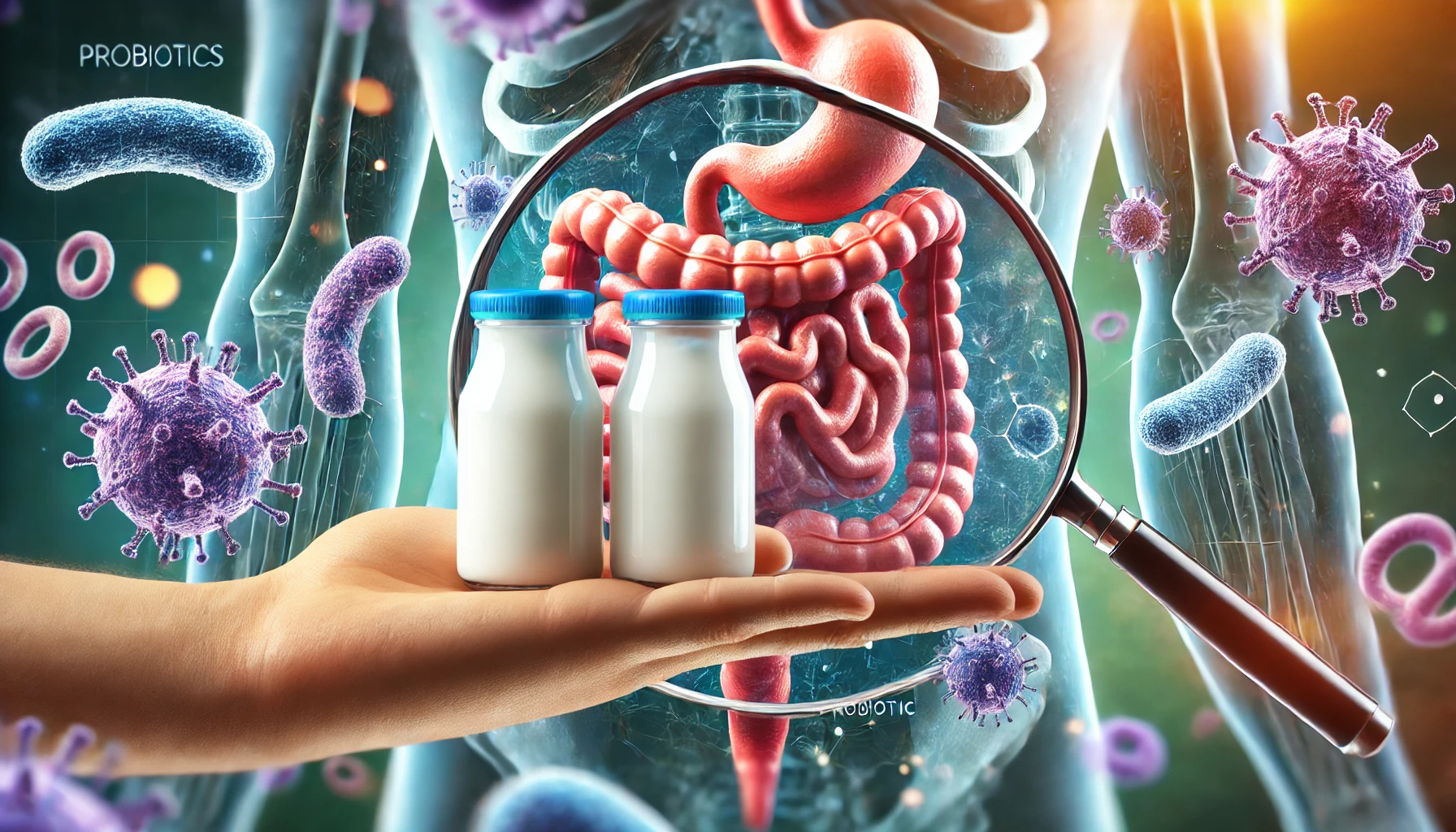This post was written with Consensus AI Academic Search Engine – please read our Disclaimer at the end of this article. Probiotics are live microorganisms that, when administered in adequate amounts, confer a health benefit on the host. These beneficial bacteria are primarily known for their role in maintaining a healthy gut microbiota, but their benefits extend beyond digestive health. Probiotics have been studied for their potential effects on various health conditions, including cognitive function, mood disorders, metabolic health, and even chronic diseases.
Mechanisms of Action
Probiotics exert their beneficial effects through several mechanisms. They can modulate the gut microbiota composition, enhance the intestinal barrier function, and influence the immune system. For instance, probiotics have been shown to reduce the relative abundance of inflammation-causing gut bacteria and increase beneficial bacteria, which can lead to improved gut health and reduced systemic inflammation1 5 6.
Cognitive and Mood Benefits
Recent studies have highlighted the potential of probiotics to improve cognitive function and mood. In a randomized, double-blind, placebo-controlled trial, probiotics containing Bifidobacterium bifidum and Bifidobacterium longum were found to improve mental flexibility and reduce stress in healthy older adults. The study also noted a significant increase in serum brain-derived neurotrophic factor (BDNF) levels, which is associated with improved brain function1. Another study demonstrated that probiotics could significantly decrease depressive symptoms in patients with major depressive disorder, suggesting a role for probiotics in mental health management2.
Metabolic Health
Probiotics have also been investigated for their effects on metabolic health. In a study involving post-gestational diabetes women, multi-strain probiotics were shown to improve fasting blood glucose levels, HbA1c, and lipid profiles, indicating their potential in managing metabolic disorders6. Similarly, probiotics were found to alleviate type 2 diabetes symptoms by regulating intestinal microbiota and inducing GLP-1 secretion in db/db mice, highlighting their role in glucose metabolism and insulin sensitivity7.
Chronic Disease Management
Probiotics have shown promise in managing chronic diseases such as type 2 diabetes and chronic kidney disease. A study on type 2 diabetes patients revealed that multi-strain probiotics significantly decreased endotoxin levels, improved glycemic control, and reduced inflammatory markers, suggesting their potential as an adjunct therapy for diabetes management8. However, another study on chronic kidney disease patients undergoing hemodialysis found that probiotic supplementation did not significantly alter inflammatory markers or reduce uremic toxins, indicating that the efficacy of probiotics may vary depending on the condition and patient population10.
Conclusion
Probiotics are a promising area of research with potential benefits for various health conditions. Their ability to modulate the gut microbiota, enhance intestinal barrier function, and influence systemic health makes them a valuable addition to the diet. However, the efficacy of probiotics can vary based on the strains used, the health condition being targeted, and individual patient factors. Further research is needed to fully understand the mechanisms and optimize the use of probiotics for health benefits.
Disclaimer
The content presented in this blog is generated by Consensus, an AI-powered academic search engine, and is based on publicly available scientific literature. While every effort is made to provide accurate, up-to-date, and well-researched information, the content is intended for informational and educational purposes only. It does not constitute medical advice, diagnosis, or treatment. Always consult a qualified healthcare professional before making any decisions regarding medical conditions, treatments, or medications. The AI system’s analysis may not cover all perspectives, emerging research, or individual cases, and it is not a substitute for professional expertise. Neither the blog publisher nor the developers of the AI-powered search engine are responsible for any actions taken based on the information provided in this content. Use of this information is at your own risk. Citations to the original scientific studies are included for reference, but these studies should be reviewed in full and interpreted with the guidance of a healthcare or research professional.
If you are experiencing a medical emergency, please seek immediate attention from a healthcare provider.
